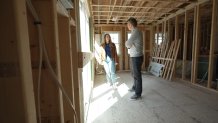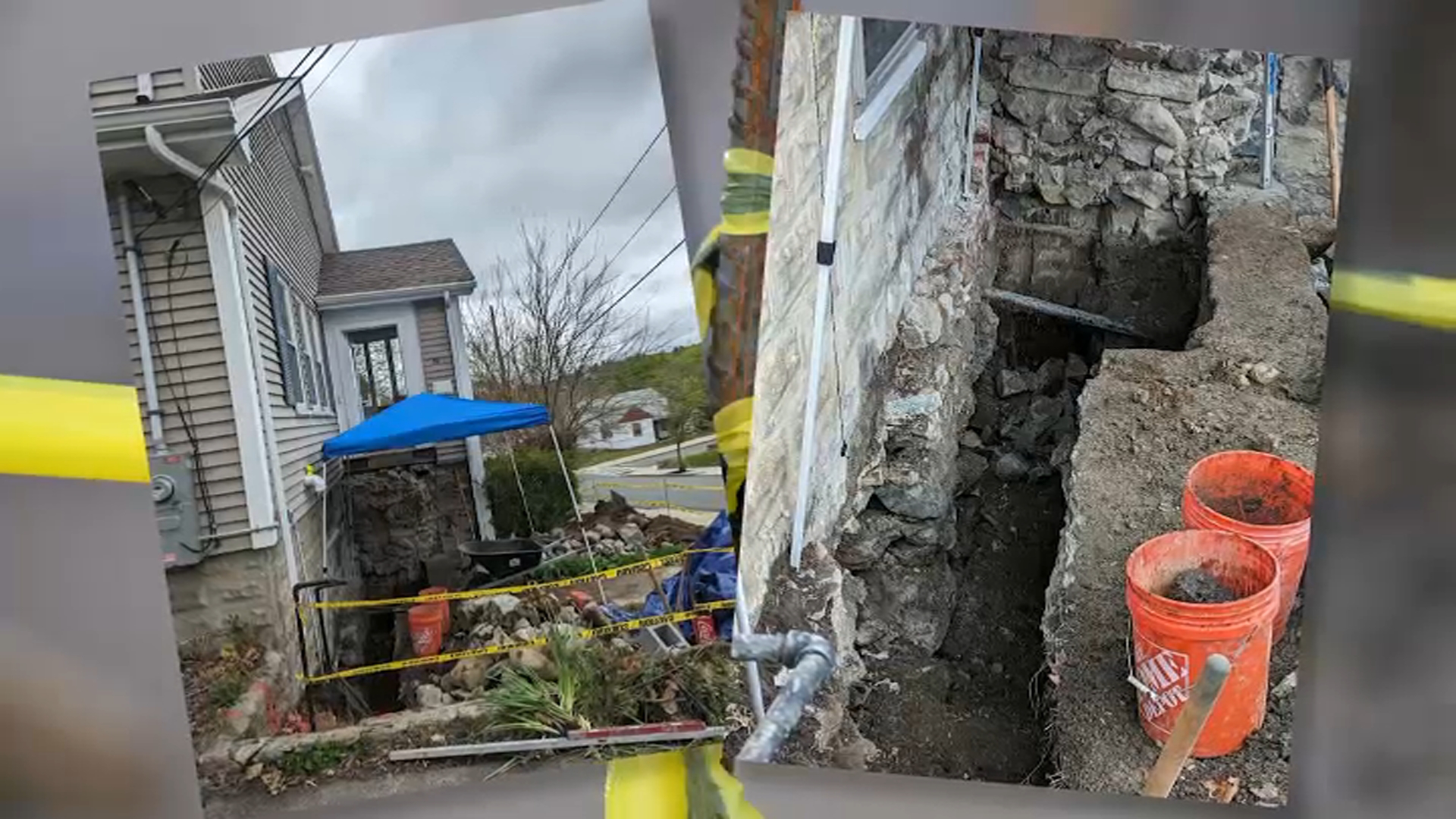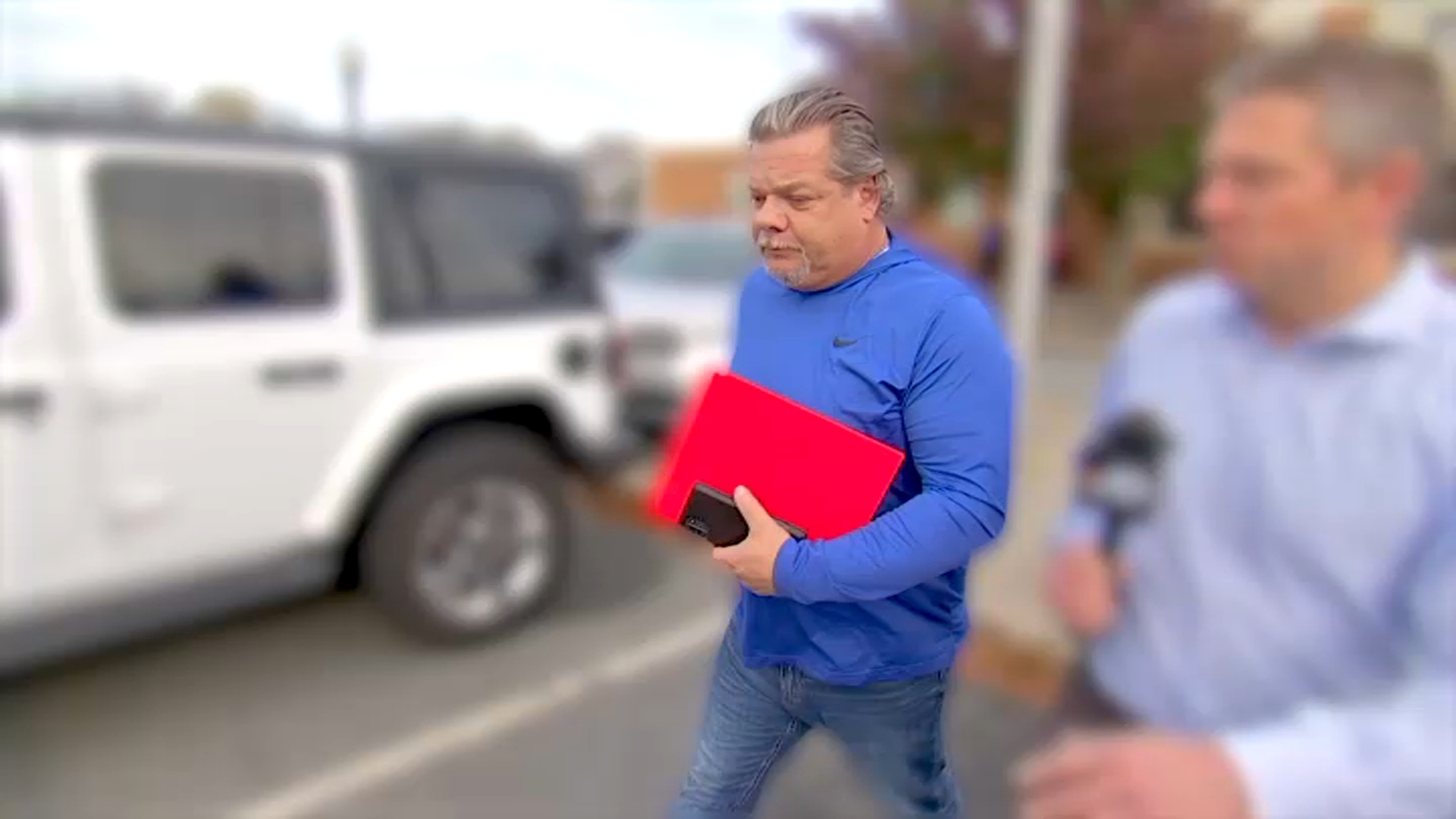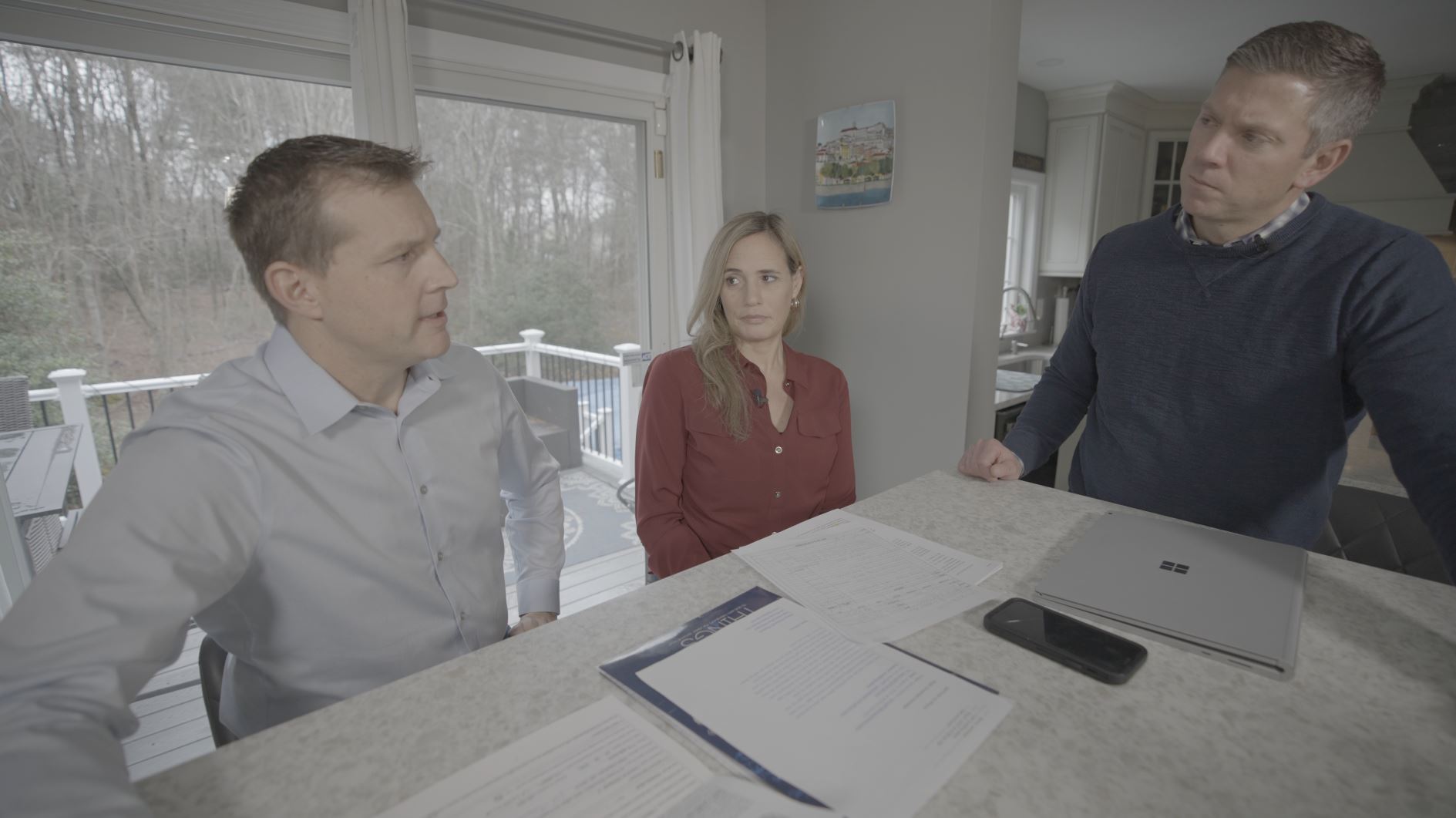Desa Vazquez walked us to the piece of property in Mansfield, Massachusetts, that she eventually hopes to call home.
The mother of three kids said she saved up for years working 80-hour weeks in the health care field to afford a place to live.
WATCH ANYTIME FOR FREE
>Stream NBC10 Boston news for free, 24/7, wherever you are. |
Standing and looking at the plot of land, Vazquez recalled the excitement of finally finding a location to build.
"I felt like everything was aligned with the universe," Vazquez said. "I wanted to give my kids the home that they deserve."
Get updates on what's happening in Boston to your inbox. Sign up for our >News Headlines newsletter.
When it was time to break ground, Vazquez did some online research and found a contractor she thought she could rely on: Liam McNeil of LHS Construction.
Along with positive online reviews, Vazquez learned that McNeil was a nurse practitioner.
"As a fellow nurse, I thought, 'This is someone I can trust,'" Vazquez said.
To get the project in motion, Vazquez paid a $40,000 deposit to get the land cleared and the foundation poured.
When McNeil asked for another payment, Vazquez said she and her bank wanted records of how the funds had been spent before approving more expenditures. At that point, only about dozen trees had been chopped down, according to an inspection report of the property.
A short time later, Vazquez got the ultimate gut punch: The business owner said he was filing for bankruptcy, and her money was gone.
"I was in complete shock," Vazquez said. "Our holidays were ruined. We were grieving the whole holidays."

Alyssa Pacheco got the same shock the night before Thanksgiving.
Upon returning to her Freetown home, a worker who had poured the foundation for her home addition project was waiting. The subcontractor said he had not been paid and had learned McNeil was filing for bankruptcy.
"He told us he was planning to place a mechanic's lien against our property," Pacheco said. "It was pretty terrifying."
At that point, Pacheco and her husband had already sunk more than $100,000 into the project that was supposed to add a two-car garage and more living space.
However, despite spending all that money, there was little progress to show. In the driveway and yard, Pacheco showed us piles of lumber that had not been paid for.

A couple of weeks before learning the bankruptcy news in November, Pacheco said she had handed McNeil another $10,000 payment.
"How could he continue to take payments from us?" Pacheco wondered. "Essentially, we realized that we got hosed."
Standing in the backyard of his home in Boston's West Roxbury neighborhood, Sean Tully shook his head while staring at the giant hole left behind.
"I hate coming back here," Tully told us.
After agreeing on a contract for a new garage, Tully paid a $17,000 deposit to McNeil. A crew came and dug the hole and then the project stalled.
Meanwhile, the hole constantly filled with water, eroding the soil around it and threatening the structural integrity of his neighbors' fences. Tully said he had nightmares of everything caving into the trench.

Tully contacted us after seeing our previous "To Catch a Contractor" coverage. He wonders how it could be legal to have homeowners lose hard-earned savings in the blink of an eye and have the debts potentially wiped away by bankruptcy.
"I feel like we got robbed," Tully said. "To simply walk away and leave other people holding the bag, it just feels like a big scam."
As we looked into some of the details about McNeil's business, we learned some of the angry customers even include some former coworkers in the health care field.
Jen Rowan, a nurse, met McNeil when they worked at the same hospital on the South Shore. Rowan hired the contractor to build an addition at her home in Weymouth last year.
"I figured that at least I knew him. I could hopefully trust him," Rowan recalled. "Yeah, he pulled a fast one on me."
After demolition for her project began, Rowan said a part of her house was left exposed to the elements as the project ran into delays.

On top of the $100,000 she has already paid, Rowan said there are now other big expenses to repair water and mold damage, along with paying a new contractor to correct other issues that surfaced during construction.
Rowan said she knows another nurse and a doctor who hired McNeil because of the work relationship and are now in even bigger financial holes.
"Where's the money?" Rowan questioned. "You're not paying employees. You're not paying your bills. Where is the money going?"
That is the $1 million question. Bankruptcy filings show McNeil owes to somewhere between 50 to 100 people, including homeowners, subcontractors, vendors and former employees. The debts also include a slew of credit cards and lines of credit.
State records show McNeil incorporated the construction business in September 2021.
In a recorded call with his creditors in January, McNeil said he did not decide to file bankruptcy until the night before he sent out letters to his customers.
"Even two days before that, or a day before that, I really was pretty much oblivious to the fact that my company was egregiously failing financially," McNeil said on the call.
According to bankruptcy documents, a handful of people are filing legal challenges that their debts should not be discharged.
That includes several former employees, who claimed that McNeil started writing them paper checks instead of paying them via direct deposit in the months leading up to the bankruptcy. They also claimed that they performed home improvement work at McNeil's home in Weymouth.
During the phone call with creditors, homeowners like Vazquez pressed for answers about how their money was spent.

"What did you do with the $40,000 we gave you?" Vazquez asked. "Did you use it for other projects or personal debt?"
McNeil responded that he did not use her money on other projects or personal debt.
"So then what was the money used for?" Vazquez asked.
After a pause, McNeil responded, "Projects."
We caught up to McNeil this month before one of his shifts at an urgent care clinic to see if we could get more specific answers.
When asked why he owed so much money to so many different people, McNeil responded, "Just way in over my head. I wasn't prepared to have a business. Just wasn't good at it. It's terrible."
During the interview, McNeil denied that he ever used company assets on his personal expenses, adding that nothing "nefarious" happened with the money.
"I feel horrible about the whole thing. It's not why I started a business," McNeil said. "We had way more expenses that we had income. I really didn't do it to make money, because I didn't make money. That's why it's disappointing."
Homeowners told us something about McNeil's explanation doesn't add up.
The trustee overseeing the case is slated to make a recommendation about whether the bankruptcy should move forward in May.
While they are not optimistic about getting any funds back, homeowners are hoping for a measure of justice or accountability.
"There needs to be some sort of repercussion if a contractor is going to do this to somebody," Pacheco said.
NBC10 Boston has learned one of McNeil's family members had a very similar scenario play out with his home construction business several years ago. What we discovered about that situation, including the criminal charges that resulted, will be coming up in a future report.




